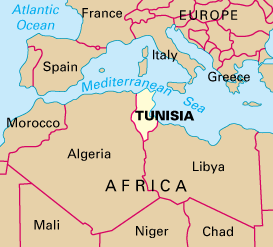7667766266
enquiry@shankarias.in
What is the issue?
At a time when Tunisia must be cherishing the 7th anniversary of the “Jasmine Revolution”, the country has crept back to turmoil.
What is Tunisia’s story?

What has led to the current wave?
What can be done?
Source: The Hindu